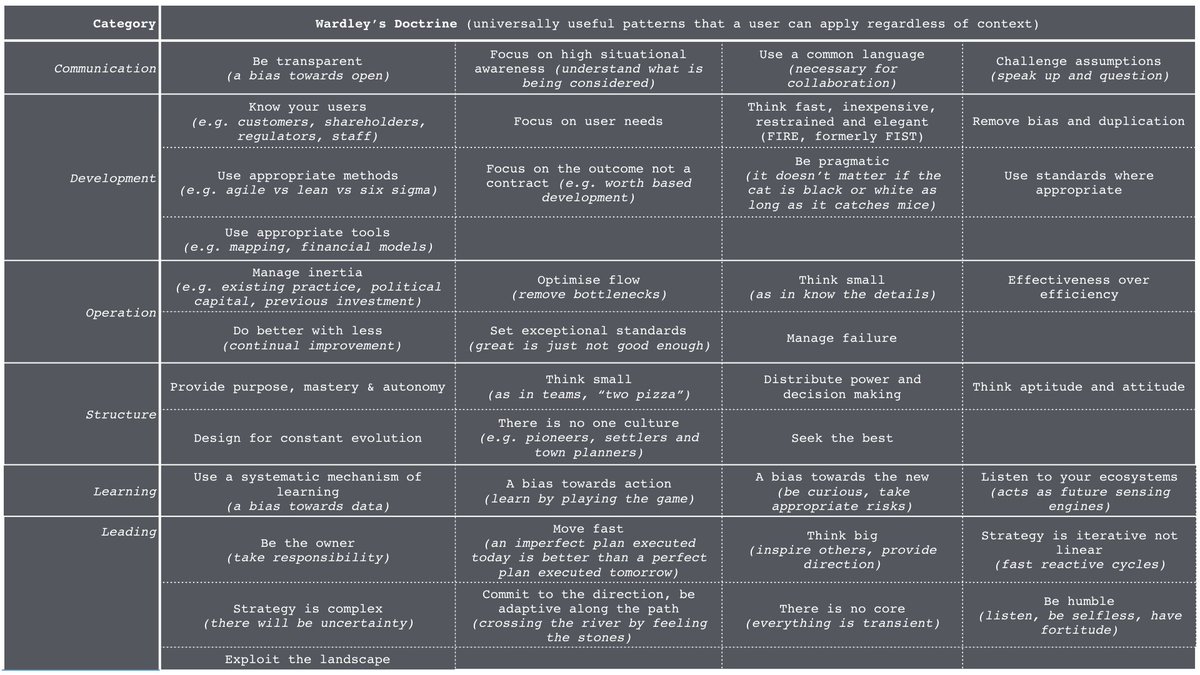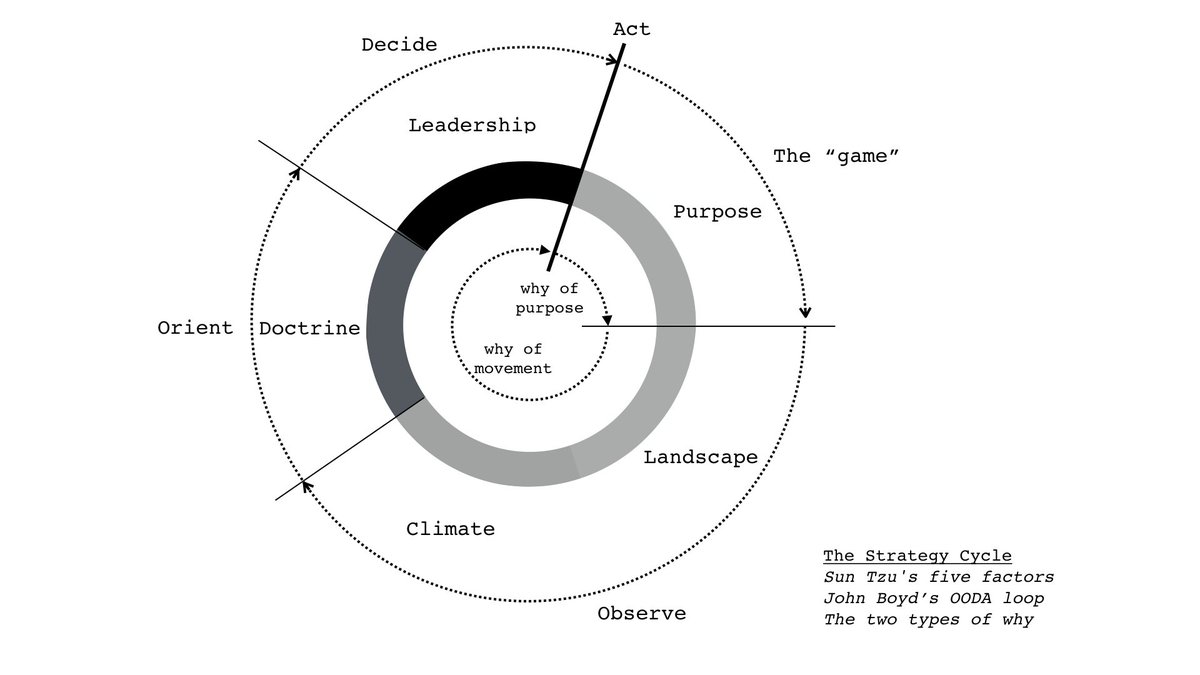2. Here are some case studies I've selected to prove my statements.
3. Here is my conclusion that my bold statements are right.
... almost every business book on culture that I've read so far. The lot. Shocking field.
The art of strategy / culture / leadership requires an understanding of context ... for answers read my book, no maps provided etc.
Me : Excellent, show me how?
Book : Here's a list of values associated with success and the case studies to show them.
Me : Outcome bias? How evolved are those values? Where are the negatives? ...
Whilst those doctrine (universal principles) are "useful" ... they have context in implementation, they are not equally evolved.
















